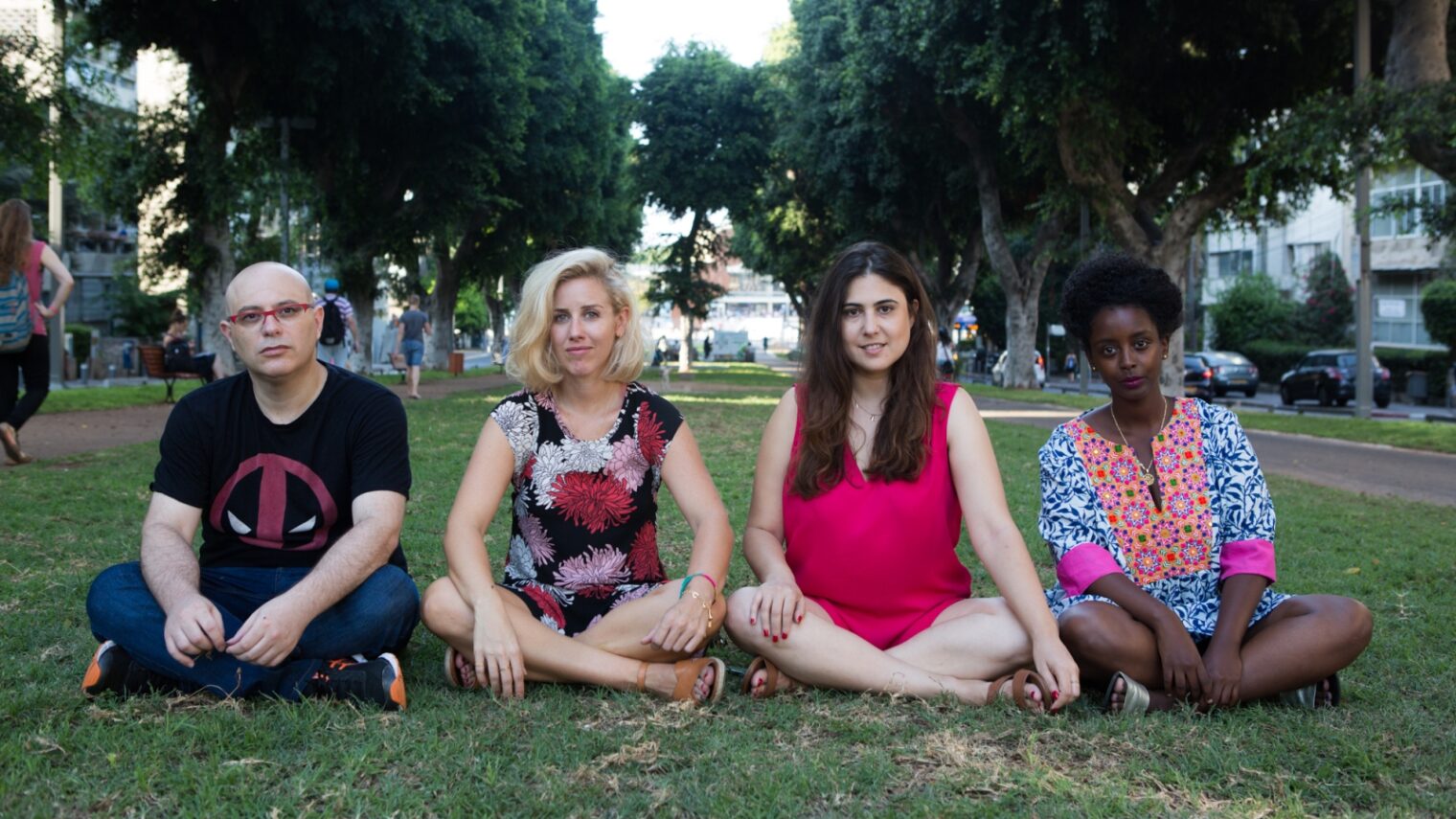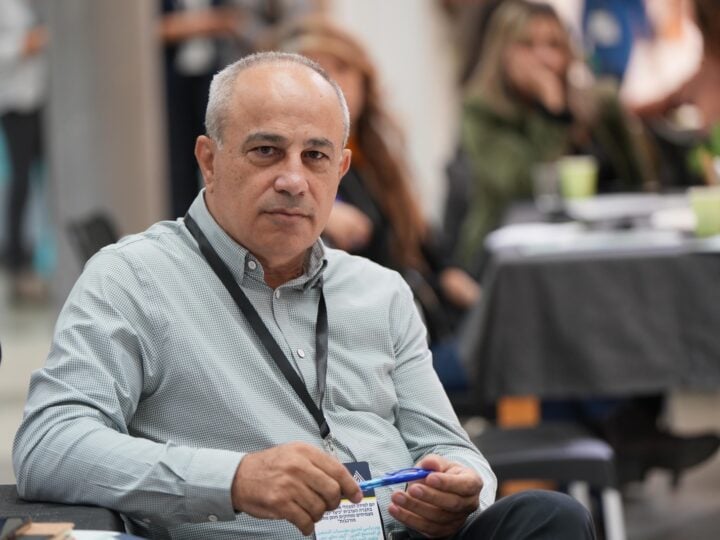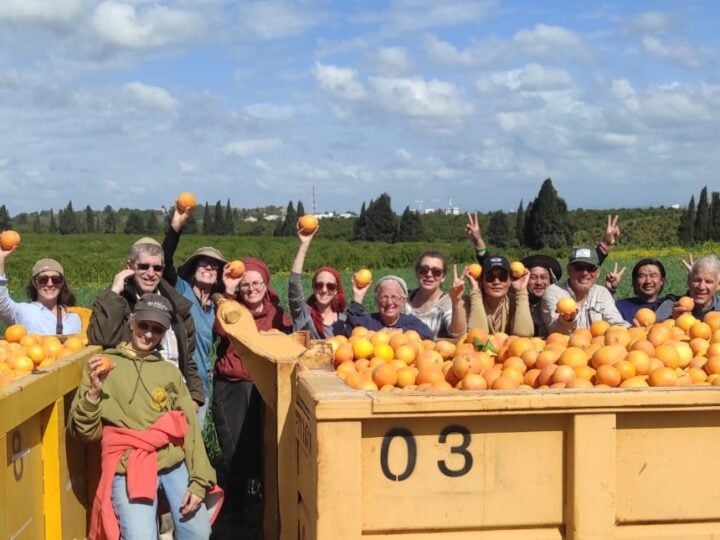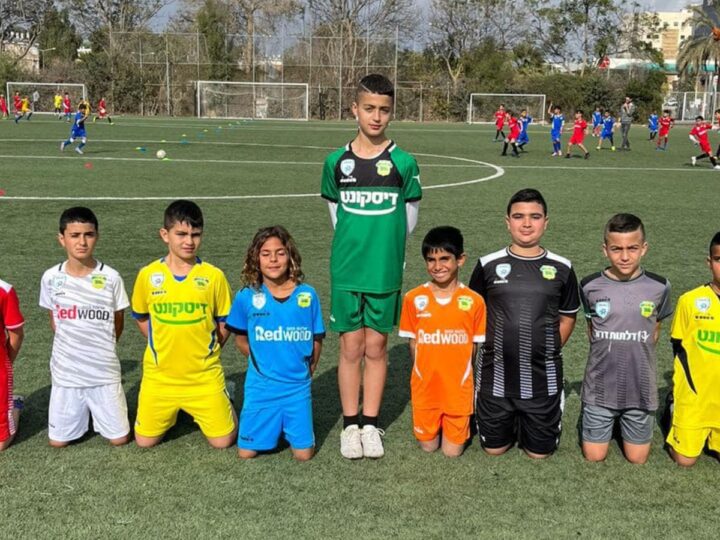Remember the social protests that rocked Israel in the summer of 2011?
Four “graduates” of that movement are launching Peace Science, a large-scale nonprofit initiative that’s not about housing and grocery prices but rather aims to give Generation Y and Z Israelis reason to believe in the possibility of peace.
Peace Science, running from April 24 through May 3, will feature 15 lectures by psychologists, brain researchers, economists, high-tech executives, futurists and historians at venues in Jerusalem, Haifa, Beersheva, Netanya, Kfar Saba, Rehovot, Givatayim and Tel Aviv.
The opening event is scheduled for April 24 at Hangar 11 in the Tel Aviv Port. Advance tickets are available for ₪50. Attendees also can choose to pay full price (₪200), symbolic price (₪100) or ₪300 including a donation to help finance the remaining tickets.
“All the other lectures are free of charge so the information will be accessible to everyone,” says cofounder Yamit Eriksson.
The lecturers lined up for the Peace Science series “are people who never talked about this before and can offer a new perspective on how peace is attainable,” she adds.
Among them is Israeli-American behavioral economist Prof. Dan Ariely of Duke University, who will reveal what he sees as the hidden irrational motivations governing the Israeli-Palestinian conflict.
Prof. Ruth Feldman, psychologist and brain researcher from the universities of Bar-Ilan and Yale, will talk about her new study on how child-rearing practices affect the Israeli-Palestinian conflict, how insights from social brain research may contribute to solving the conflict, and why gaps in education and socioeconomic status could be addressed using hormones.
Prof. Yoram Yovell, psychiatrist and brain researcher at Hadassah Medical Center in Jerusalem, will discuss how to mobilize psychology to overcome mistrust, violence and frustration.
Prof. Eran Halperin, head of the Social Psychology Center at IDC Herzliya, will talk about why many Israelis seem indifferent to the peace process although they are highly interested in other social and political issues.
University of Haifa orientalist Ronit Marzan, former adviser on Arab affairs to five Israeli prime ministers, will present her ideas about why the solution to the Arab-Israeli conflict lies in hearts rather than brains.
Author Maya Savir, who worked for extended periods in South Africa and Rwanda, will talk about the relationship between algae and reconciliation.
Michal Engelberg, head of the Marom Foundation, will reveal what happens when people are faced with the true consequences of their political choices, and whether attitudes can be changed this way.
Roie Ravitzky, head of the Religious Peace Initiative, will share what he learned from the historical meeting he organized between the founder of Izz ad-Din al-Qassam and a Chief Rabbi of Israel, and how religious leaders can lead the way to reconciliation.
Only some of the lectures will be in English, but simultaneous translation will be available at the opening event and videos of all talks in the series will be subtitled.
“We want to inspire people to take action and steer this conversation to reignite hope that peace is possible. Unless people speak about the situation nothing will change,” says Eriksson.
Among the sponsors of Peace Science is Good2Go, a new travel products company that promotes volunteering around the world.

















